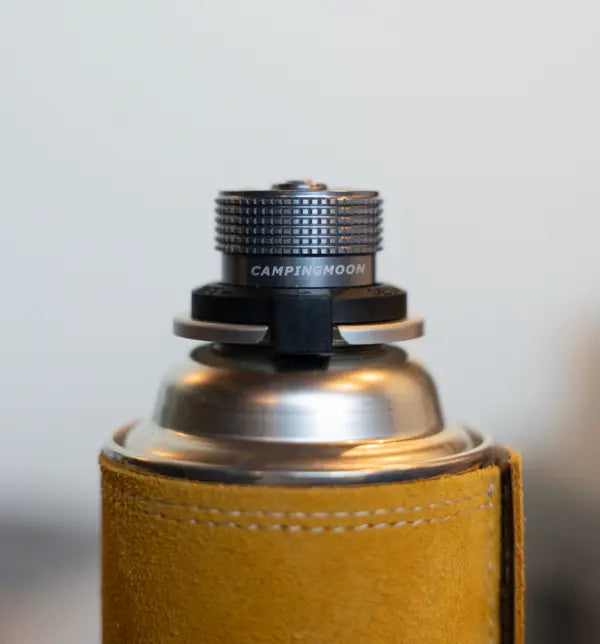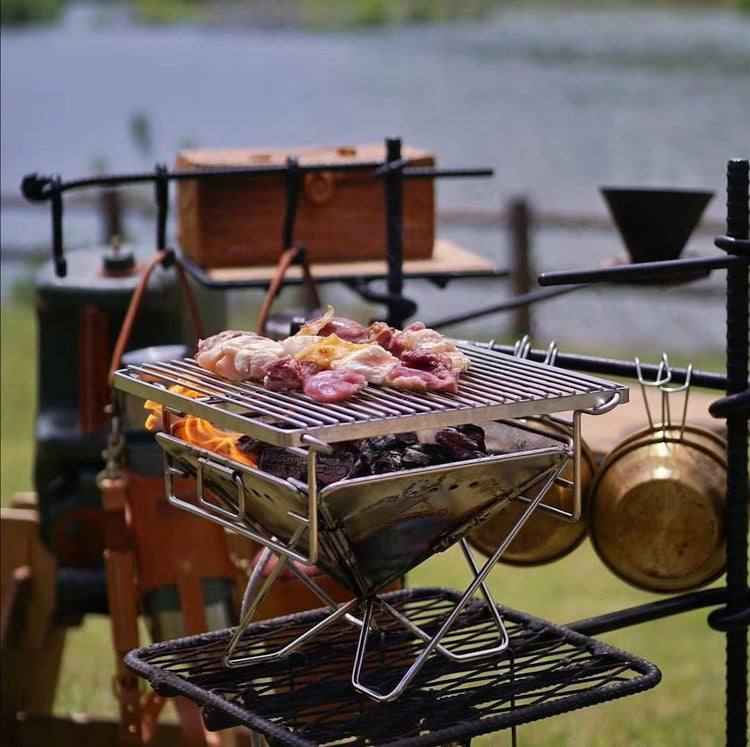Introduction
Choosing the right fuel for your camping stove is crucial for cooking efficiency, fuel availability, and overall camping experience. Two of the most common options are propane and butane, each with distinct advantages and drawbacks. This guide will help you determine which fuel type suits your camping needs, whether you're backpacking in the mountains or setting up a family campsite.
Understanding Propane and Butane
What is Propane?
-
Boiling Point: -42°C (-44°F) → Works well in extreme cold
-
Storage: Pressurized canisters or refillable tanks
-
Availability: Widely available at outdoor stores, gas stations, and supermarkets
-
Burn Efficiency: Higher heat output, burns efficiently even in cold conditions
-
Common Uses: Car camping, overlanding, cold-weather expeditions
What is Butane?
-
Boiling Point: -1°C (30°F) → Struggles in freezing temperatures
-
Storage: Small, lightweight canisters
-
Availability: Readily available but slightly less common than propane
-
Burn Efficiency: Burns cleaner, but less efficient in cold weather
-
Common Uses: Backpacking, ultralight camping, warm-weather camping
Propane vs. Butane: Key Differences
| Feature | Propane | Butane |
|---|---|---|
| Cold Weather Performance | Excellent (-42°C boiling point) | Poor (-1°C boiling point) |
| Availability | Widely available | Readily available but slightly less common |
| Storage & Portability | Bulkier tanks, heavier | Lightweight canisters, compact |
| Burn Efficiency | High heat output, efficient | Burns clean, slightly lower BTU output |
| Environmental Impact | Higher CO₂ emissions | Lower CO₂ emissions, burns cleaner |
| Best For | Car camping, overlanding, cold weather | Backpacking, warm-weather camping |
Advantages and Disadvantages of Propane and Butane
✅ Pros of Propane
✔️ Performs well in all temperatures, including extreme cold ✔️ Readily available in multiple canister sizes ✔️ High heat output for faster cooking ✔️ Can be used with larger, refillable tanks for extended trips
❌ Cons of Propane
✖️ Bulkier and heavier than butane ✖️ Requires a high-pressure canister, making it less portable ✖️ Slightly more CO₂ emissions compared to butane
✅ Pros of Butane
✔️ Lightweight and portable – great for backpackers ✔️ Burns cleanly with lower emissions ✔️ Small canisters are convenient for short trips ✔️ Typically more affordable per canister
❌ Cons of Butane
✖️ Poor performance in cold weather (below freezing) ✖️ Slightly less efficient compared to propane ✖️ Not as widely available in rural areas
Which Fuel is Best for Your Camping Style?
Best for Cold Weather Camping: 🏕️ Propane
If you camp in freezing temperatures, propane is the better choice. Its low boiling point ensures it remains efficient in sub-zero conditions, making it the preferred option for winter campers and mountaineers.
Best for Backpacking & Ultralight Camping: 🎒 Butane
For backpackers and ultralight hikers, butane’s compact canisters make it ideal. It burns cleanly and is easy to carry, though it's best suited for warm-weather camping.
Best for Car Camping & Overlanding: 🚙 Propane
For long trips or group camping, propane is the winner. Larger refillable tanks make it easy to fuel multiple cooking sessions without running out.
Best for Budget Campers: 💰 Butane
Butane canisters are generally cheaper per unit, making them a cost-effective solution for casual campers who don’t need extreme weather performance.
Enhance Your Stove Versatility with Campingmoon Adapters
No matter which fuel you choose, having the right adapter can significantly improve your camping experience. Campingmoon gas adapters allow you to use a variety of fuel canisters with different stoves, making your setup more flexible and cost-effective. Our adapters work with propane, butane, and isobutane canisters, giving you the freedom to switch between fuel types based on availability and camping conditions.
Why Choose Campingmoon Adapters?
✔️ Versatility – Use different fuel canisters with your existing stove setup ✔️ Cost-Saving – Allows you to use more affordable or available fuel sources ✔️ Lightweight & Durable – Built for outdoor conditions without adding bulk ✔️ Easy to Use – Simple, secure connections ensure safe fuel transfers
Check out our Campingmoon gas adapters to make the most of your camping stove, whether you're using propane, butane, or isobutane!
Alternative Fuel Options
If neither propane nor butane fits your needs, consider these alternatives:
-
Isobutane: A mix of propane and butane that offers better cold-weather performance than pure butane.
-
White Gas (Liquid Fuel): Ideal for extreme cold and high-altitude expeditions.
-
Alcohol Stoves: Ultralight and simple, but with a lower heat output.
Final Verdict: Propane or Butane?
| Camping Type | Best Fuel Choice |
| Winter Camping & Cold Weather | Propane |
| Backpacking & Ultralight Camping | Butane |
| Overlanding & Car Camping | Propane |
| Casual Camping in Warm Weather | Butane |
If you're unsure, isobutane-propane mix offers the best of both worlds—better cold-weather performance than butane, but lighter and more compact than propane.
Conclusion
Choosing between propane and butane depends on your camping conditions and priorities. Propane is the go-to choice for cold-weather and car camping, while butane is ideal for lightweight, warm-weather adventures. Understanding fuel efficiency, availability, and portability will help you select the best fuel for your next camping trip.
What’s your go-to camping stove fuel? Share your experiences in the comments!


